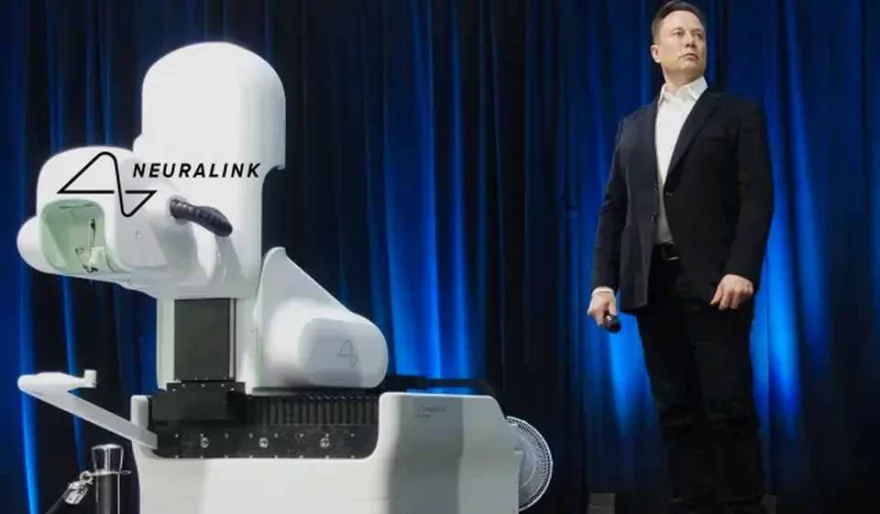Stay Ahead of the Curve
Latest AI news, expert analysis, bold opinions, and key trends — delivered to your inbox.
Elon Musk's Neuralink Raises $43 Million to Advance Brain-Implant Technology
8 min read Neuralink, Elon Musk's brain-computer interface venture, secures a silent $43 million boost, soaring total funding to over $323 million! The substantial investment underscores the escalating interest in the future of brain-implant tech. November 27, 2023 07:42
Neuralink, the brain-computer interface company founded by Elon Musk, has quietly secured an additional $43 million in funding. This brings the company's total funding to date to over $323 million, a significant investment that reflects the growing interest in the potential of brain-implant technology.
Neuralink's mission is to develop implantable brain-machine interfaces (BMIs) that can connect the human brain directly to computers. These BMIs have the potential to revolutionize a wide range of fields, including healthcare, communication, and entertainment.
The company has made significant progress in recent years, developing a sewing machine-like device that can implant ultra-thin threads into the brain. These threads are connected to a custom-designed chip containing electrodes that can read information from groups of neurons.
Neuralink's latest funding round will be used to further develop its technology and bring it closer to human trials. The company has ambitious plans for the future, hoping to use BMIs to treat a variety of neurological conditions, restore lost function for people with disabilities, and even enhance human cognition.
Potential Applications of Neuralink's Technology
- Restoring lost function: BMIs could be used to restore sight, hearing, and other sensory functions for people with disabilities.
- Treating neurological conditions: BMIs could be used to treat a variety of neurological conditions, such as Parkinson's disease, epilepsy, and depression.
- Enhancing human cognition: BMIs could be used to enhance human memory, learning, and problem-solving abilities.
- Communication and entertainment: BMIs could be used to enable direct communication between the brain and computers, opening up new possibilities for communication and entertainment.
Challenges and Ethical Considerations
Despite the potential benefits of Neuralink's technology, there are also significant challenges and ethical considerations that need to be addressed. These include:
- Safety: Ensuring the safety of brain implants is paramount. Any device implanted in the brain must be biocompatible and not cause any harm to the brain tissue.
- Privacy: Protecting the privacy of brain data is essential. BMIs could collect vast amounts of data about a person's thoughts and feelings, and it is important to ensure that this data is not misused.
- Access: Ensuring that BMIS are accessible to everyone, not just the wealthy, is important. Brain implants could become very expensive, and it is important to ensure that they are not used to create a new class of superhumans.
Neuralink's latest funding round is a significant milestone for the company, but it also marks a turning point. The company must now address the challenges and ethical considerations that lie ahead if it wants to bring its technology to market and revolutionize the way we interact with the world.
Neuralink's recent funding round signals the growing interest in brain-implant technology. While the company has made significant progress, there are still many challenges that need to be addressed before BMIs can become a reality. However, the potential benefits of this technology are immense, and it is worth watching closely to see how Neuralink's work progresses in the years to come.



















 AI Agents
AI Agents